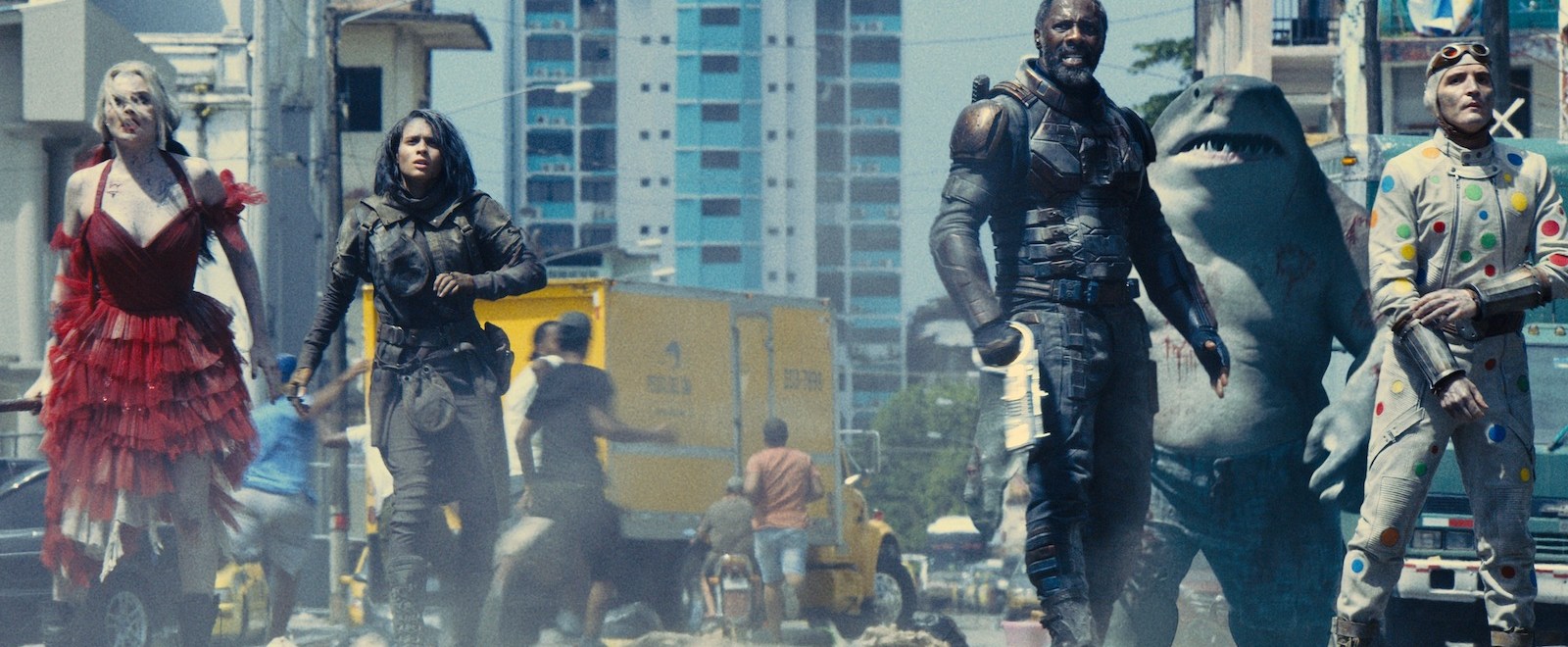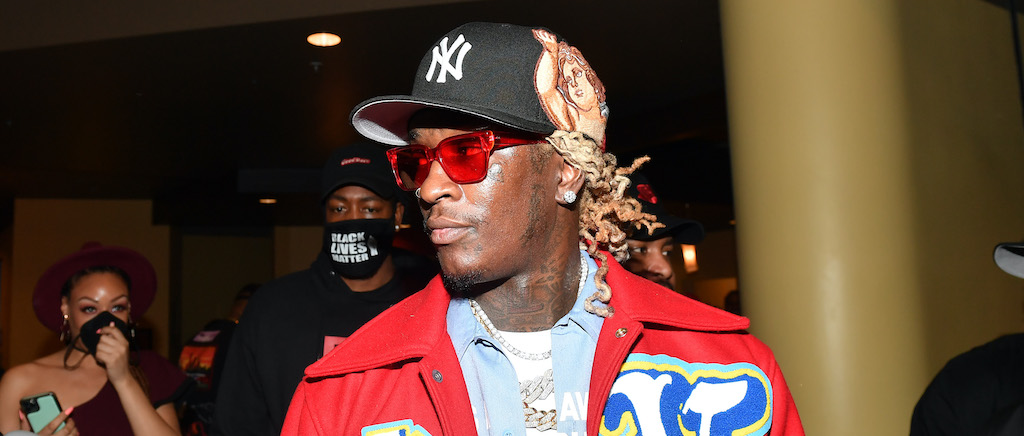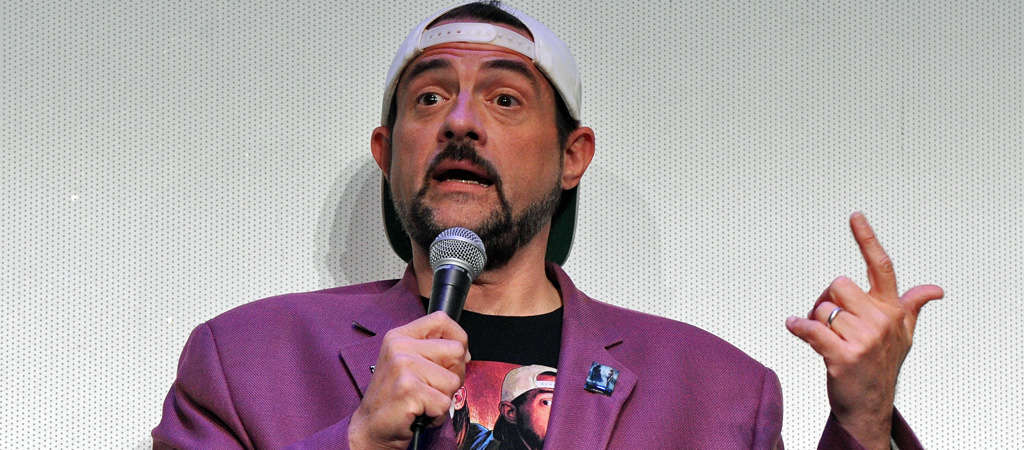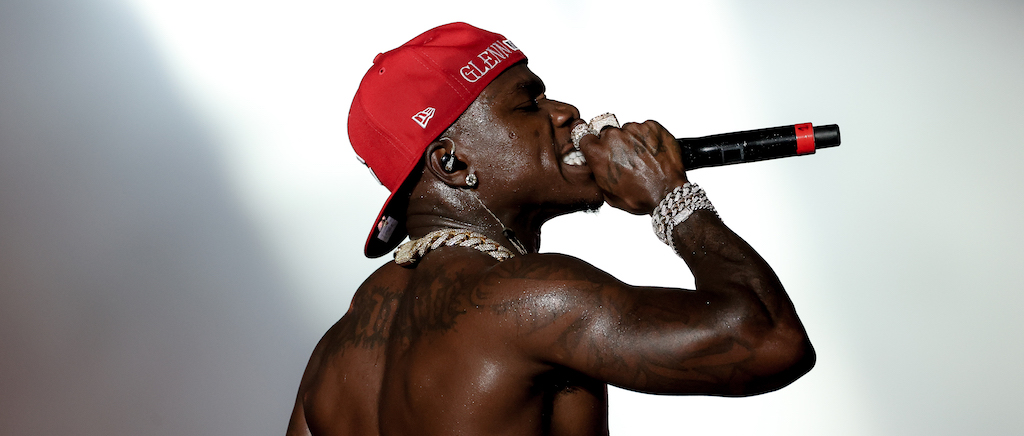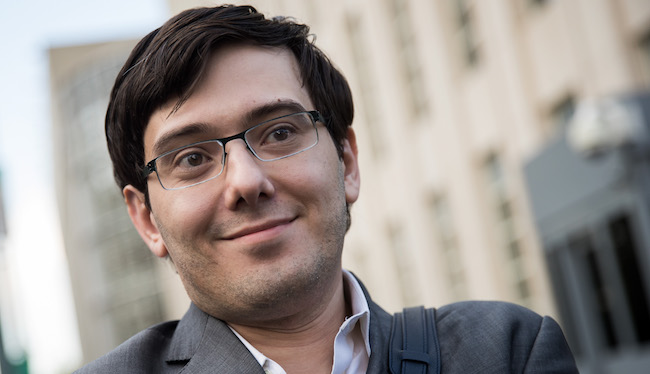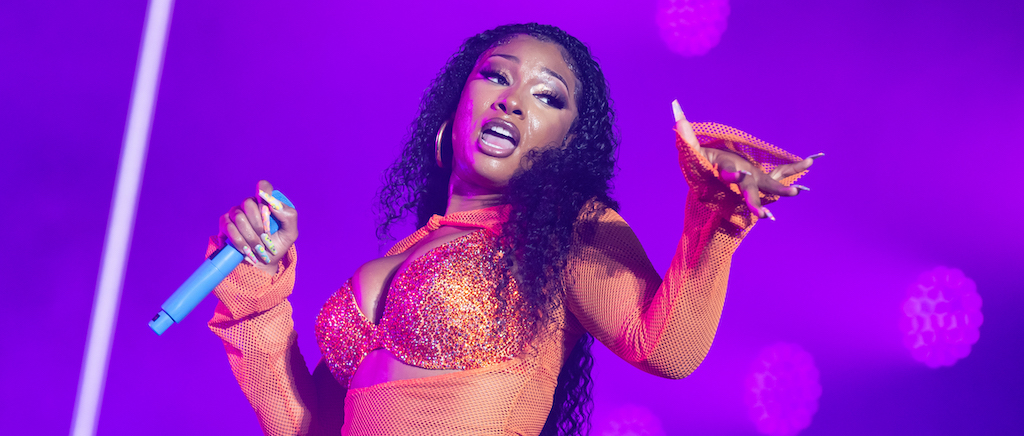The NBA never sleeps and, a little more than a week after the conclusion of the 2020-21 season and the crowning of the Milwaukee Bucks as champions, the league has a major event on the docket Thursday. The 2021 NBA Draft arrives after a short cycle, and the rumor mill is, of course, churning in earnest. With a draft class that inspires mixed reactions from informed observers, there is considerable intrigue as to what might take place on Thursday, including the potential for utter chaos.
If nothing else, it is usually safe to project a considerable impact on the league’s landscape that will be driven by what transpires on Draft night. That could simply mean that the order of prospects, paired with teams, could deliver considerable fallout, but trade winds are already blowing and considerable movement, up and down the board, could be in the offing. Before the Detroit Pistons are officially on the clock, Dime checks in with a final mock draft, knowing full well that one wrong turn can (and likely will) flip the script.
And we’re off.
1. Detroit Pistons – Cade Cunningham (G/F, Oklahoma State)
Cunningham has been No. 1, at least for me, during the entire cycle. It is at least plausible that the Pistons throw a curveball on Thursday, either by trade or a shocking selection, but every point of intel points to Cunningham as the No. 1 pick. He’s the best prospect in the class and should be here.
2. Houston Rockets – Jalen Green (G, G League Ignite)
This isn’t as easy of a decision as Cunningham should be at No. 1 overall. In the same breath, Green is easily the player most associated with the No. 2 pick. If he hits, Green could be a primary offensive option and his work in the G League, at a very young age, was quite impressive. There are nits to pick, but he’d be a totally reasonable No. 2 pick, either for Houston or another team in a trade.
3. Cleveland Cavaliers – Evan Mobley (C/F, USC)
Cleveland is in a bit of a weird spot. Their best prospects are two smaller guards (Collin Sexton, Darius Garland) and they just used a first-round pick to acquire Jarrett Allen, with Larry Nance as their best established veteran. With Evan Mobley and Jalen Suggs as the top two remaining players, they are going to have at least some fit question regardless, but Mobley is the superior prospect in my view. Beyond that, he is the guy most linked to the Cavs if they stay put here and both Cunningham and Green are off the board.
4. Toronto Raptors – Jalen Suggs (G, Gonzaga)
Suggs is the end of a tier for many observers, and some view him as a top two or three pick. For me, he’s a solid No. 4 overall. The Raptors could trade this pick to go in several different directions but, if I have to make a pick for Toronto right now, it is Suggs. He’s the best player available and could fit in well with what the Raptors have in house without the pressure to carry an organization on his back.
5. Orlando Magic – Scottie Barnes (F, Florida State)
Personally, Barnes isn’t No. 5 on my board, but he’s in the same tier. Moreover, this is a mock draft and not a big board, with league observers seemingly quite interested in Barnes. He would definitely fit the archetype that has intrigued the Magic in the past, if nothing else. Orlando could also be a trade team, and they have another pick coming in short order.
6. Oklahoma City Thunder – Jonathan Kuminga (F, G League Ignite)
It’s been a topsy-turvy cycle for Kuminga. After his first G League game, some vaulted him to the top of the pecking order. Once reality set in, he was seemingly slotted at No. 5 for most, but there is a real split in his evaluation. He’s quite raw at this stage, but the Thunder can afford to be patient. They could go elsewhere here, but Kuminga does make sense if they buy his shooting long-term.
7. Golden State Warriors (via Minnesota) – James Bouknight (G, UConn)
The Warriors are fascinating in that they could trade their picks and/or they could also fire on a few different prospects. Bouknight is a player that the league is higher on than I am, but his appeal is clear. He is a potential multi-level scorer that is more polished than many prospects in this range. If the Warriors want to add another shot creator, he would be a logical choice in some respects.
8. Orlando Magic (via Chicago) – Franz Wagner (F, Michigan)
First, Wagner is a totally reasonable pick in the top-10. Second, this would be pretty funny. The Magic really love their forwards/bigs with length and defensive acumen. Wagner fits that bill, but he does bring the potential to shoot it and function as a secondary creator in some looks. Orlando is believed to be looking at wings, particularly if they go with Barnes at No. 5, and Wagner is arguably the best of the bunch, even if he trends toward combo forward status.
9. Sacramento Kings – Alperen Sengun (C/F, Beskitas)
Even with a relatively new front office, the Kings are the Kings. They could do anything. Sengun is a darling of statistical models, and there is a thought that Sacramento could lean into the numbers more than other front offices. There are huge questions about how his game may translate to the NBA, but the Kings don’t have their frontcourt locked up long-term, particularly if Richaun Holmes leaves in free agency.
10. Memphis Grizzlies (via New Orleans) – Josh Giddey (G/F, Adelaide)
The Grizzlies moved up seven spots and, in short, the deal they made with the Pelicans makes a lot more sense if they have a player or two in mind at No. 10. One of those prospects is thought to be Josh Giddey, who is a big-time passing prospect with great size at 6’8. He isn’t a name that casual observers will know a lot about (although maybe this will help), but Giddey is a high-ceiling player with great feel that could unlock some things in Memphis alongside Ja Morant.
11. Charlotte Hornets – Kai Jones (C/F, Texas)
Charlotte is certainly in the market for a big, and that makes this pairing. Jones seems to think he is more of a forward than a true center but, regardless, he has intriguing tools and might be a lot of fun with LaMelo Ball long-term. The Hornets could also go with wing depth and that wouldn’t be strange in the least.
12. San Antonio Spurs – Moses Moody (G/F, Arkansas)
The Spurs are always impossible to figure out around the draft. They could trade up. They could trade down. They could trade out. They also stay put more often than not, and Moody would be a heist at No. 12 overall. It’s a best player available pick and every team could use a two-way wing prospect with upside.
13. Indiana Pacers – Davion Mitchell (G, Baylor)
Mitchell’s stock has endured quite a journey, but it seems to be settling in to the late lottery. His supporters are very enthusiastic, in part because of Mitchell’s performance during Baylor’s title run. His detractors point to age, shooting inconsistency, and general uncertainty offensively. The Pacers might not be his landing spot, but there are rumblings about a backcourt shake-up there and Mitchell would be interesting to pair with a new coaching staff.
14. Golden State Warriors – Chris Duarte (G/F, Oregon)
Duarte is very old. If he was 21, he’d probably be a consensus top-10 guy. Instead, he’s 24 and polarizing. The Warriors are heavily linked to him, though, and he could make sense if Golden State is trying to straddle the line between present and future.
15. Washington Wizards – Corey Kispert (G/F, Gonzaga)
Washington quietly had very little shooting last season. Yes, Bradley Beal and Davis Bertans can fill it up, but the Wizards took shooting-challenged prospects in the last two lotteries, while Russell Westbrook is Russell Westbrook. Kispert can, and will, shoot at a high level. Some might even view him as the best prospect available, even if I wouldn’t quite go there.
16. Oklahoma City Thunder (via Boston) – Jalen Johnson (F, Duke)
Ask 10 people about Jalen Johnson. You might get 10 different answers. He’s a strange yet intriguing prospect with pre-college pedigree and undeniable talent. That sounds like a job for Sam Presti.
17. New Orleans Pelicans (via Memphis) – Trey Murphy (F, Virginia)
As soon as New Orleans made their trade with Memphis, the reports came that they could move the pick again. As such, this is very tentative. Murphy is a late-rising prospect who can really shoot it, and he doesn’t take anything off the dribble. The Pelicans need floor spacing and defense around Zion. Murphy definitely does one of those things (shooting) and might do the other as well.
18. Oklahoma City Thunder (via Miami) – Keon Johnson (G, Tennessee)
Another pick, another upside bet for Oklahoma City. Johnson was the standout in athletic testing at the Combine, and he should be able to defend right away. Offensively, it’s a different story, with Tennessee not doing him any favors and Johnson struggling to prove much of anything at the collegiate level. He’s certainly a Lottery-level athlete, and the Thunder can afford to be patient.
19. New York Knicks – Jaden Springer (G, Tennessee)
New York has been linked to every point guard under the sun, and Springer isn’t a point guard. What he is, though, is a talented perimeter player that defends at a high level. As noted above, Tennessee was a difficult scouting environment this season, but Springer’s fans would point to untapped potential in droves.
20. Atlanta Hawks – Jared Butler (G, Butler)
Travis Schlenk and the Hawks could use this pick to do just about anything. Atlanta is in need of a backup point guard, but they could also go with a best player available choice, or they could consider moving the pick for present-day help after a run to the NBA’s final four. In Butler, they theoretically plug a hole behind Trae Young, but he is also a potentially high-value role player with his shooting and defensive aptitude. It wouldn’t be sexy, but it makes a ton of sense if the Hawks stay put.
21. New York Knicks (via Dallas) – Usman Garuba (F/C, Real Madrid)
Garuba reportedly has a sky-high buyout that could complicate his selection. Still, he is worthy of a top-20 investment and the Knicks get a steal here from a value standpoint. Garuba’s offensive game is admittedly underwhelming, but he is a potentially dynamic defender and the Knicks would seemingly place a premium on that given who their head coach is right now.
22. Los Angeles Lakers – Cam Thomas (G, LSU)
Duarte is the home run for the Lakers as a win now player in the Draft. With both Duarte and Trey Murphy unavailable, Los Angeles turns to the backcourt and finds a certified professional scorer. Thomas can create his own shot with the best of them, and the Lakers have some uncertainty on the perimeter outside of that LeBron fella.
23. Houston Rockets (via Portland) – Sharife Cooper (G, Auburn)
Cooper’s stock is absolutely all over the place, to the point where some reporting points to a potential slide out of the first round. Houston can afford to take a swing with three picks, though, and Cooper brings a dynamic they don’t currently have as an elite live-dribble passer and off-the-bounce creator. If he can shoot, he will outperform this pick. That’s a big if.
24. Houston Rockets (via Milwaukee) – Ziaire Williams (F/G, Stanford)
The Rockets fire away with another high-upside bet here and, truthfully, it doesn’t seem all that likely that Houston will make all three picks where they are right now. Still, we aren’t projecting trades, and Williams slips here after a dreadful season at Stanford. He is still intriguing, though, with a high release point and shooting pedigree.
25. Los Angeles Clippers – Miles McBride (G, West Virginia)
McBride is sometimes compared to Patrick Beverley. He’s a tremendously impactful defender at 6’2 who changed games on a regular basis for West Virginia. Offensively, he might not have the juice to be an every-play creator at lead guard, but he’s been a quality off-ball shooter in the past and he can handle the ball when needed. That sounds like a fit on a team with Kawhi Leonard and Paul George.
26. Denver Nuggets – Josh Primo (G, Alabama)
The Nuggets aren’t shy about taking swings. Primo the youngest player in the Draft and, six months ago, most did not consider him even a fringe first-round pick. Since then, he’s come flying up the board, and Denver could bank on a continued rise. They also don’t need to rely on him immediately, which helps when putting the case together for this pick.
27. Brooklyn Nets – Quentin Grimes (G, Houston)
Grimes seems to be getting some late buzz as a first-round pick. He isn’t a high-ceiling swing, but the former five-star prospect remade his game at Houston to rave reviews. Brooklyn could view this pick as an opportunity to add a low-cost role player to aid in their title pursuit the next couple of years. If they do, Grimes fits as a two-way player that doesn’t need to have the ball to succeed.
28. Philadelphia 76ers – Tre Mann (G, Florida)
Philadelphia’s focus would seemingly be on the perimeter. Mann is a professional-level operator in the pick-and-roll, and he brings intriguing size as a lead guard. His shooting could be a swing skill, but this would be a strong value if Mann slides here.
29. Phoenix Suns – Isaiah Jackson (C/F, Kentucky)
This would be a bit of a tumble for Jackson, who could go in the mid-first round. The Suns have a few things to evaluate after their run to the NBA Finals, but backup center is definitely a concern. They did invest in Jalen Smith a year ago, but Jackson has some versatility and would also have a claim as the best prospect available at No. 29 overall.
30. Utah Jazz – Joel Ayayi (G, Gonzaga)
Ayayi isn’t viewed as a consensus first-rounder, but he is a potentially fantastic complementary piece. He is a strong team defender with the ability to shoot, handle the ball, and check a lot of boxes. Utah would probably prefer a big wing, but Ayayi would fit snugly with what they have and could return value.
